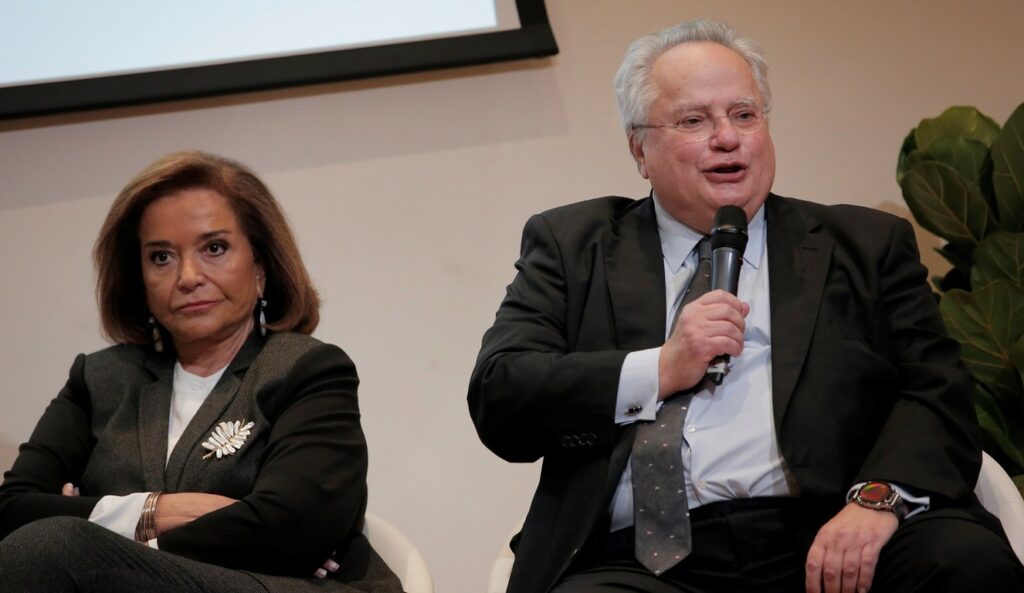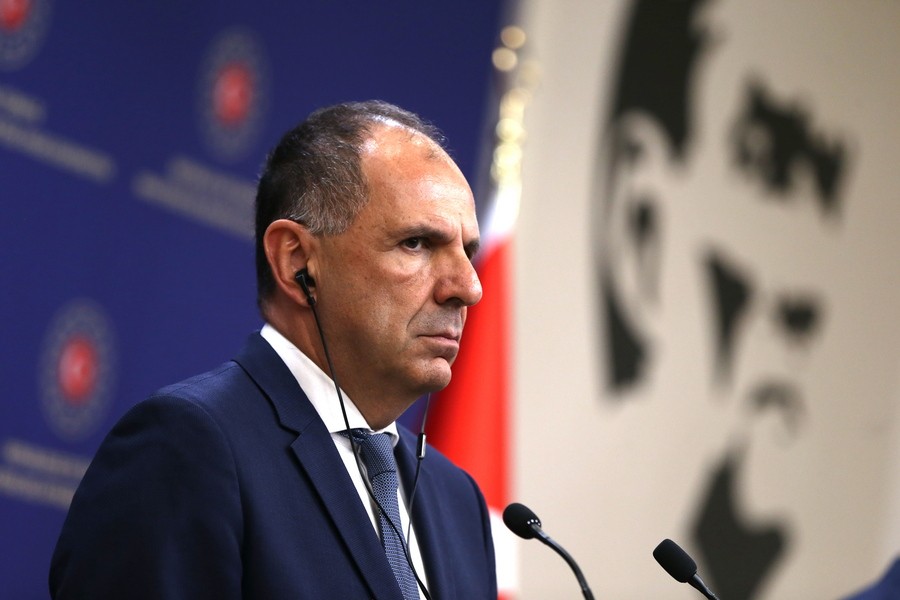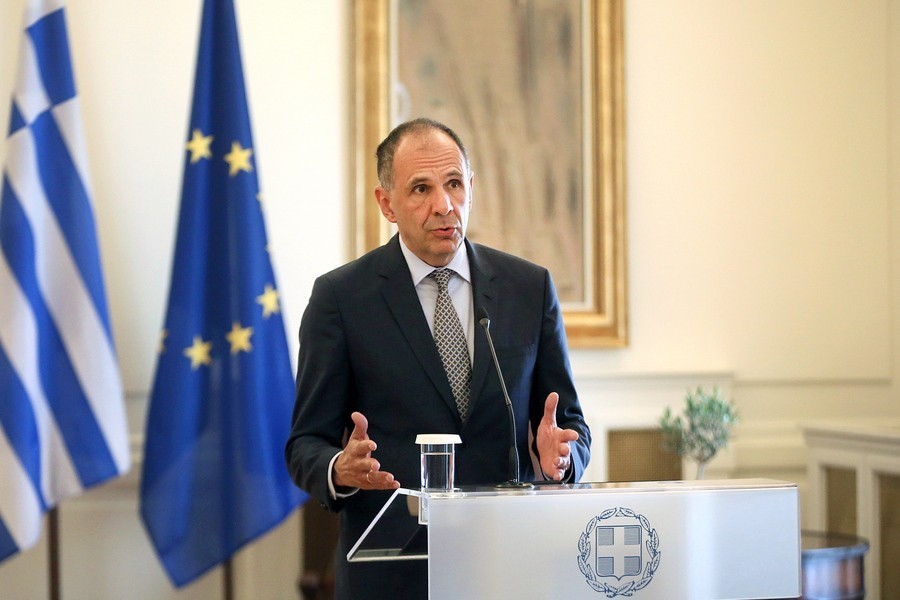
Fear and cowardism make disastrous scenarios;:Βold patriots make fair deals, says Kotzias
“Greece has decided to send a message to the east and west, towards all our friends and not, that whoever is violating the principles national sovereignty and respect towards us, measures will be taken. The time when it was considered diplomacy to turn a blind eye has passed,” Foreign Minister Nikos Kotzias said on Sunday in an interview with the Athens-Macedonian News Agency (ANA).
Asked about the tension that exists in recent days in Greek-Russian ties, and the possible cancellation of the Russian Foreign Minister’s visit to Athens, Kotzias said that he is not worried and expressed his hope that any problems will be resolved in a friendly way.
“Sergei Lavrov, whom I consider to be one of the best diplomats on the international scene, and I have a friendly relationship, asked me to invite him. To come to Greece to prepare for the trip of the Prime Minister Alexis Tsipras to Moscow, who was invited by them. I gave this invitation. If he wants to come, he will do so, again he will be welcome. If he feels that he must align with those that we expelled or with those that were not allowed to enter, it is his right. I tried, as you know, and it is highlighted in the announcement, not to link these bad cases with formal Russia. It is an issue for Russia if it wants to identify link with them or not,” he said.
The Greek minister underlined that he is not worried about Greek-Russian ties.
“I am concerned about a change taking place in our country. When I ask for Turkish soldiers to leave Cyprus, they respond to me that this is not patriotic, leave some. When I ask to solve the name issue, the Skopje problem, they say to me no, not rush. When I take measures against people that violate international law and the rules of hospitality of a country, they say you shouldn’t have done this. I don’t understand why. On the one hand, some people use rhetoric of hate in the country and towards small countries such as northern Macedonia, Albania, and others and on the other hand, when large countries violate our rules, they say that we must put up with it and bow.”
Kotzias said the fact that Greece’s opposition parties kept low tones on the issue and were careful in their statements as regards the Greek-Russian ties was “very good”.
Regarding the Prespes agreement, Kotzias said that the conditions were mature for a deal.
“They claim that we rushed. The conditions were mature. When the conditions are mature, it means that you must proceed with what you what you can do,” he said.
There are others who prefer the continuation of the problems, he said and wondered: “Do we want a FYROM that is under the influence of Turkey or a FYROM that has a friendly relationship with us? That is what we have to answer and not whether we rushed. Do we want a FYROM in which Slavic fundamentalism will develop and there will be trends of terrorism from the North to Greek Macedonia or do we want to eliminate the causes and possibilities of strengthening Slavic fundamentalism and terrorism in North? Do we want a country that will stabilize and be tied with us financially, geographically and socially or do we want a country that sees us as an enemy and looks forward to cooperation with other countries that we would not be very happy about?”
Asked whether this was the best deal our country could reach with Skopje, Kotzias said: “We could have a better agreement if the other party did not participate in the negotiations. We would not have called it North Macedonia, but North Alaska. The fact that we had made all these concessions the previous years did not help. But we had to deal with two issues: one was that the other side had to agree, because we did not conquer it in order to impose what we want. We want the other side to convince its own society, to win the parliament majority, the referendum, to revise its constitution, to proceed with difficult decisions.”
“Secondly, we had to deal with a fait accompli which must be taken into consideration. What we managed to do was to correct some things in the best possible way. But, the continuation of the state is a basic principle of the international law,” he added.
Kotzias stressed that compromises are required in a negotiation. “But we managed to gain the abolition of irredentism, the recognition of the borders, the recognition that there are no minority rights in Greece and claims, recognition that they must change their name to Northern Macedonia, recognition that this should be for all purposes, recognition that they should make constitutional changes,” he stated.
Source: ANA-MPA

